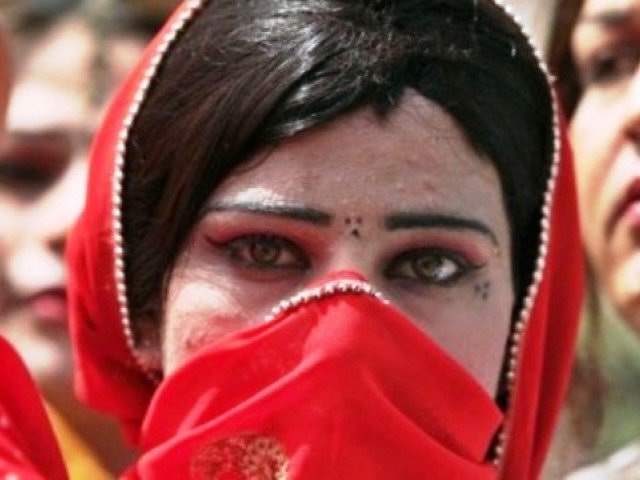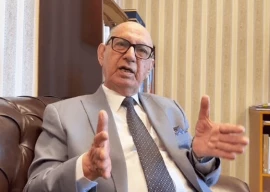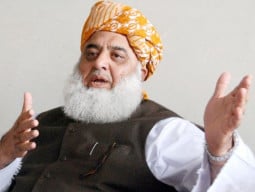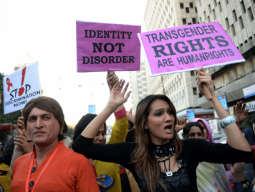
The National Database and Registration Authority (NADRA) informed the Federal Shariah Court (FSC) on Tuesday that it was scrapping the Rule 13-1 which pertained to gender reassignment.
During the hearing of the case related to the rights of transgender people, a two-member bench was informed that the Nadra chairman had approved the abolition of the clause while approval would be obtained in a board meeting within a month.
The FSC bench, comprising Acting Chief Justice Syed Muhammad Anwar and Justice Qasim Ali Shaikh, rejected the request from Kamran Murtaza, the counsel for the Jamiat Ulema-e-Islam for issuing notices to the provinces, saying that the matter pertained to the federation.
At the outset of the hearing, the lawyer for the Human Rights Ministry informed the bench that the court’s order was sent to 39 ministries, out of which five to six ministries had responded, saying that there was no transgender employee there.
However, Justice Shaikh expressed his displeasure with the reply, asking that while the court was sending reminders after reminders but was there any implementation of the court order? The lawyer assured the bench that full details would be presented in the court on the next hearing.
The counsel for NADRA told the court that Rule 13 of the NADRA regulations regarding NADRA cards was being abolished. In this regard, he added, the NADRA chairman had given his approval, but the final approval from the board was yet to be taken.
Justice Shaikh asked about the meeting schedule. The lawyer replied that under normal circumstances, the meeting was held once every month. Justice Shaikh said that the agenda and minutes of the meeting would be reviewed in the case.
Read Reviewing the Transgender Persons Act is not about religion, but about politics
The JUI-F lawyer requested the court to also issue notice to the provinces so that they also come to court. However, Acting Chief Justice Anwar made the observation that the Transgender Act belongs to the Federation and there is no need for the provinces.
Later, the court directed all the petitioners to present their arguments in the case. Appearing on behalf of petitioner Senator Mushtaq Ahmed of the Jamaat-e-Islami, lawyer Imran Shafiq advanced his arguments. He stated that gender and sex were the same thing.
Shafiq maintained that the Transgender Act used the word ‘transgender’ which had not been interpreted. He stressed that the matter needed to be seen in legal and religious light, whether one could determine own sex and whether Islam allowed sex-change.
He argued that the spheres of men and women had been determined separately. He said that a transgender person could simply be defined as someone who had both genders, adding that under the act, a transgender person would have the right to decide own gender.
However, he continued, the Qur’an and the Sunnah did not give the authority to decide the gender by themselves. Islam categorised male and female based on clear signs of gender, therefore, the self-determination of gender should not be allowed, he added.
The petitioner, Sentor Mushtaq Ahmed himself came on the rostrum to address the bench. He said that he proposed an amendment to the Transgender Act in the Senate but later several amendments were submitted by other lawmakers.
He added that he then submitted a new bill on the matter in the Senate, which had been pending with the relevant house committee for a review. On that Justice Shaikh asked the senator to submit a copy of the new bill in the court.
Later, Nadeem Kashish requested the court that the word ‘Khansa’ [eunuch] be included in the bill for them. Shahana Abbas told the court because of ‘Gender X’ in their identity cards, they were unable to travel for Hajj or even to any Arab country.
Another petitioner Orya Maqbool Jan informed the bench that he had submitted his written arguments. Kamran Murtaza told the court that he would present his arguments on the next hearing. The court adjourned further hearing of the case till November 2.




1731916090-0/sabrina-(3)1731916090-0-165x106.webp)
















COMMENTS (3)
Comments are moderated and generally will be posted if they are on-topic and not abusive.
For more information, please see our Comments FAQ